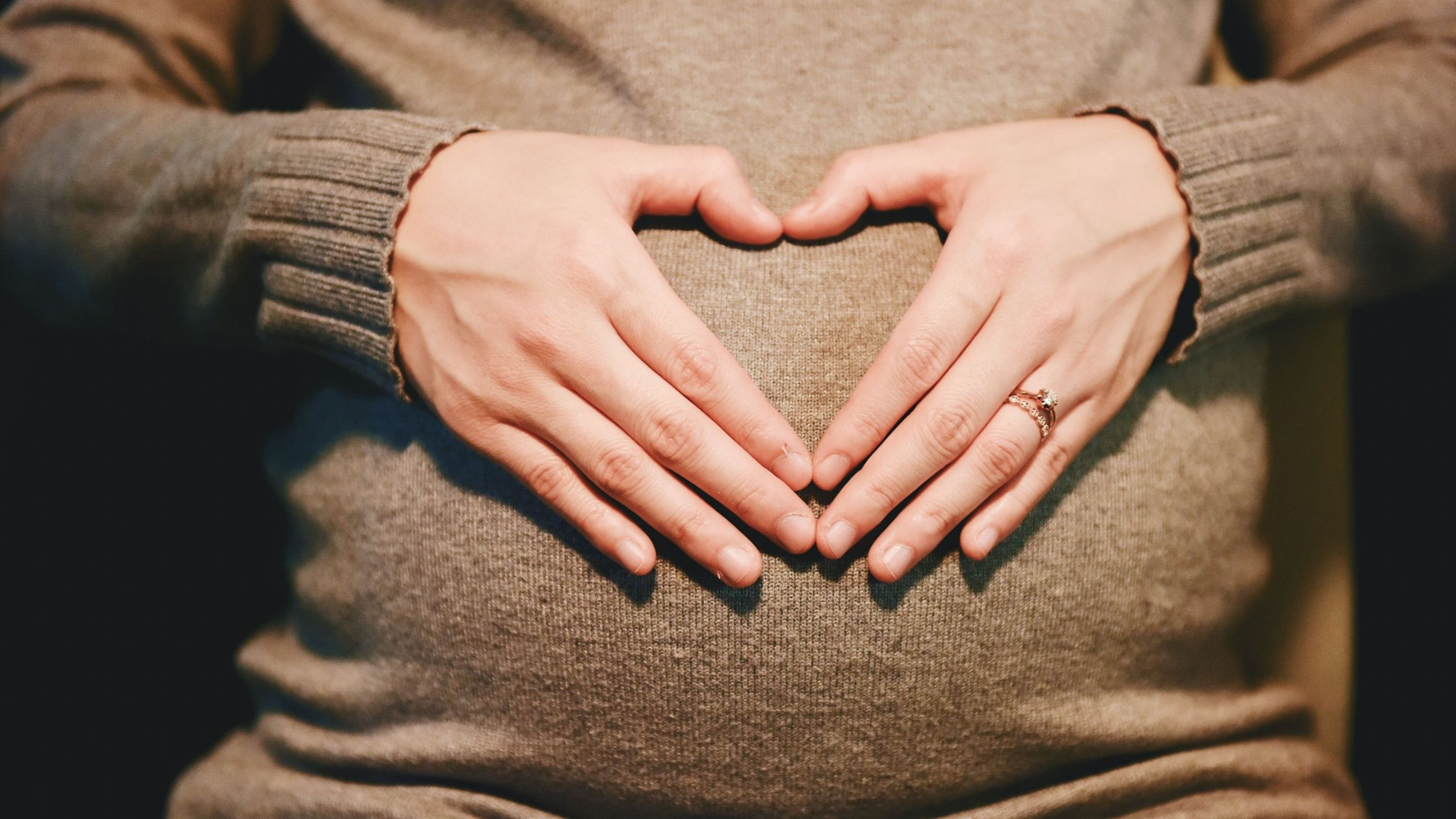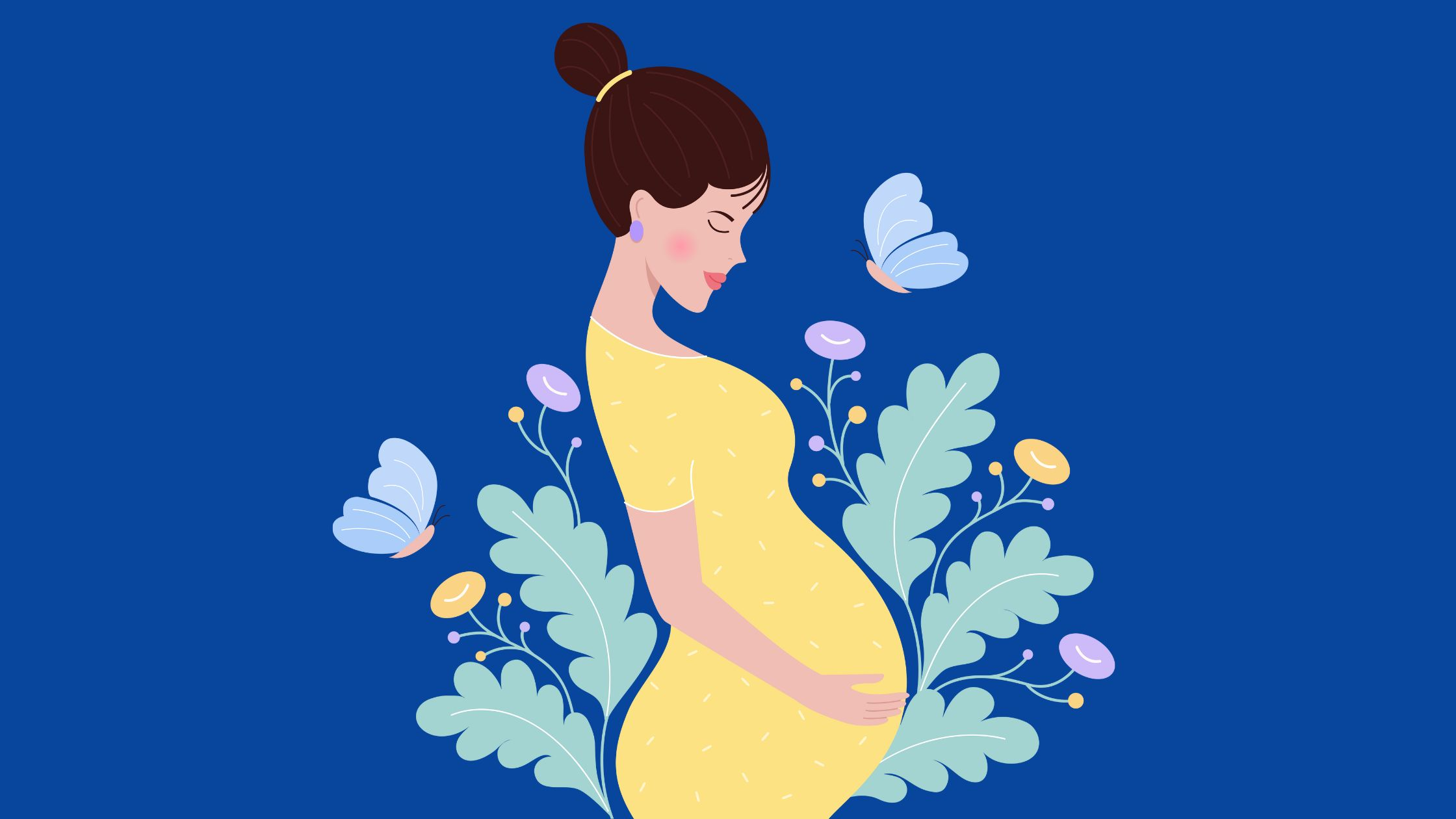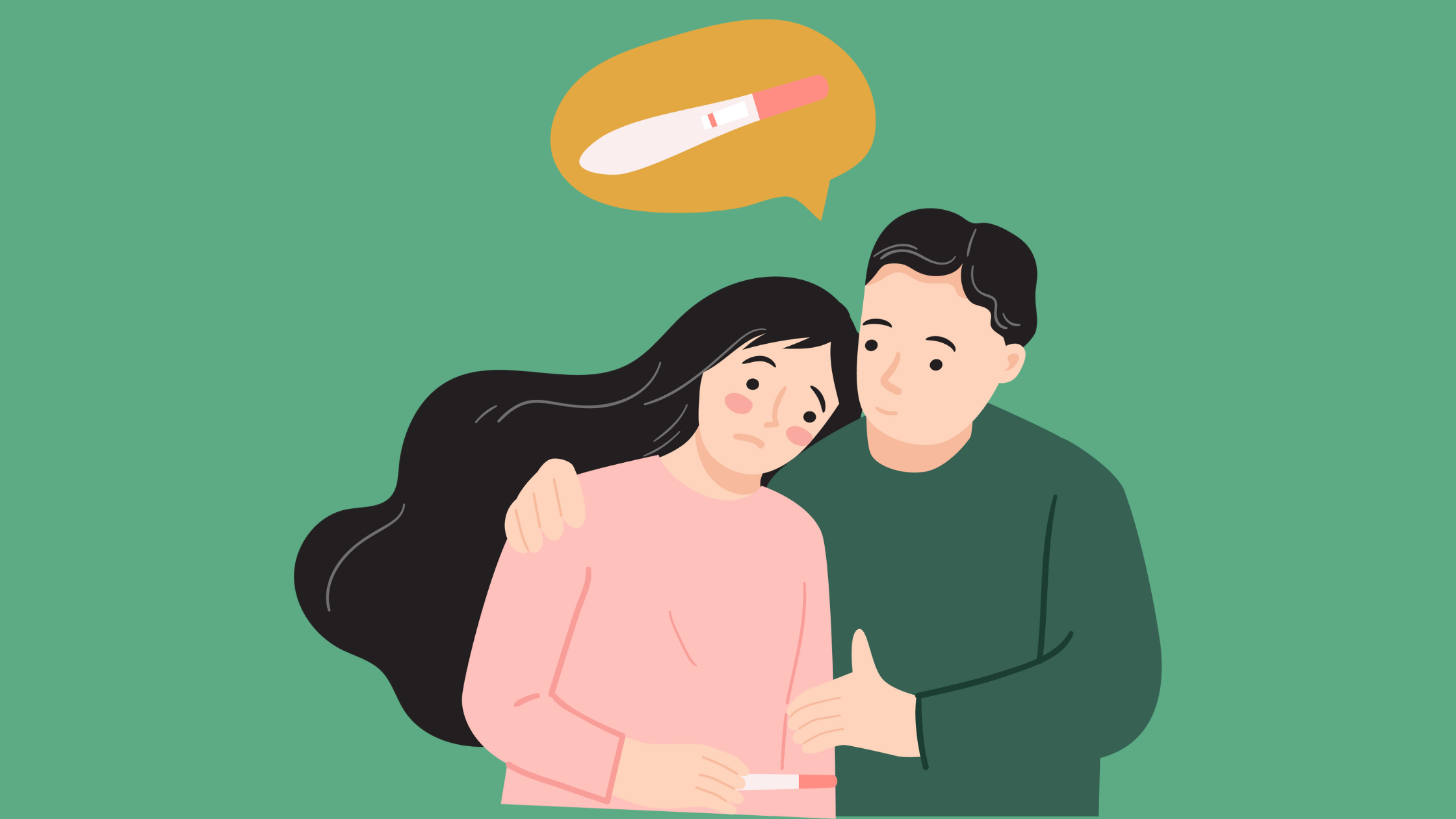If you’re trying to conceive, the anticipation of finding out if you’re expecting can feel endless. 13 DPO is a significant milestone in the early pregnancy journey. Around this time, many women start noticing body changes that might hint at a successful conception.
Whether it’s tender breasts, nausea, or just feeling unusually tired, these are the pregnancy signs you should watch out for. They’re like little breadcrumbs hinting at the possibility of pregnancy.
Monitoring the days after ovulation (DPO) can help you observe potential pregnancy symptoms in your body. If you’re at 13 DPO, you’re almost at the finish line of this waiting game. What signs might you notice at 13 DPO, and what steps should you take if your pregnancy test returns negative? Let’s explore!
What Is Happening in Your Body at 13 DPO?

One of the critical milestones in the journey to motherhood is 13 DPO. But what exactly does this mean, and why is it so significant?
Let’s break it down step by step.
Ovulation is a crucial phase in a woman’s menstrual cycle. It’s when one of the ovaries releases a mature egg, all set to be fertilized. This egg then goes through the fallopian tube, where it might meet a sperm and get fertilized. If the egg and sperm meet, we call it conception. This typically takes place between day 10 and day 21 of a woman’s cycle.
Now, once the egg is fertilized, it doesn’t just stay put. It travels down to the uterus, and around 6 DPO, it implants into the uterine wall. This process is known as implantation.
When you’re at 13 DPO, your body starts giving you hints. You might notice pregnancy symptoms like light spotting, cramps, fatigue, and even the infamous “morning sickness.” Why? Because once you’re pregnant, your body starts producing higher levels of certain hormones, like progesterone and hCG (human chorionic gonadotropin). These pregnancy hormones are the reason for early pregnancy signs.
But here’s the tricky part: these symptoms can be pretty sneaky. They might feel a lot like PMS. Also, not feeling any of these symptoms doesn’t rule out pregnancy. Every woman’s body is unique. Some might experience a surge in hormonal levels and the accompanying symptoms early on, while others might need more time.
Early Pregnancy Symptoms at 13 DPO

Every woman experiences different bodily changes during the early stages of pregnancy. While many might start noticing signs before or after 10 DPO – generally when implantation happens – there are typical early pregnancy symptoms that many report around 13 DPO. These symptoms often lead to a BFP (Big Fat Positive) on a pregnancy test.
Due to hormonal and physiological shifts caused by pregnancy, you might observe the following 13 DPO symptoms:
1. Cramping
Experiencing cramps during early pregnancy can be a bit perplexing, mainly if you’re used to the typical discomfort that comes with your menstrual cycle.
Around the time of implantation, some women might feel a mild, pinch-like pain in their lower abdomen. This sensation, often called implantation cramping, is your body’s response to a fertilized egg settling into the lining of your uterus. These cramps are generally lighter and less intense than the ones you’d feel during your period.
2. Spotting or Bleeding
Around 13 DPO, some women might notice a bit of light bleeding or spotting, commonly called implantation bleeding. Here’s the scoop on what’s happening: after the sperm fertilizes the egg, it goes down to the uterus. As it settles into the inner lining of the uterus, known as the endometrium, it can displace a bit of tissue. This displacement results in light bleeding or spotting.
Now, the timing of this can be confusing. Implantation bleeding typically happens between 10 to 14 DPO. But this timeframe often aligns with an expected period date. So, it’s super easy to mistake this spotting for the start of menstruation. However, there are some telltale differences. Implantation bleeding is usually lighter in color and flow, short-lived, lasting just a day or two. Plus, it shouldn’t have any clots, unlike regular menstrual bleeding.
3. Breast Changes
Around 13 DPO, if you’re pregnant, you might start noticing some changes in your breasts. They could become more sensitive, larger, and tender when touched. Along with this, the nipples and areolas (that’s the dark part around your nipple) may appear darker and more engorged. Feeling a tingling sensation or some discomfort in the nipples? That’s part of the package too.
So, what’s causing all these changes? It’s mainly due to the surge in pregnancy hormones, particularly progesterone and estrogen. Initially, the corpus luteum, a temporary endocrine gland in the ovaries, produces these hormones. As the pregnancy progresses, the placenta takes over this role. These hormones are essential for supporting the processes of childbearing, and since the breasts play a crucial role in this journey, they’re significantly influenced by these hormonal shifts.
4. Fatigue
Many women experience heightened fatigue at this stage, often linked to early signs of pregnancy. This exhaustion isn’t just your regular tiredness; it’s your body responding to a whirlwind of changes happening inside.
A primary culprit behind this fatigue is the hormone progesterone. Once implantation occurs, your body produces more of this hormone. Elevated progesterone levels can make you feel drowsy and more tired than usual. But that’s not the only thing at play here.
Your circulatory system is also undergoing some significant changes. Blood vessels expand, especially those leading to the uterus, to ensure it gets a good supply of blood. This expansion can cause a drop in blood pressure, adding to the feelings of exhaustion. Additionally, the body has an increased demand for sugar and oxygen, which can further contribute to fatigue.
5. Nausea
Nausea, often called “morning sickness,” is a hallmark sign of pregnancy around 13 DPO. Contrary to its name, nausea can strike any time, day or night.
The primary culprit behind this symptom is the hormone human chorionic gonadotropin (hCG). Once the egg is fertilized and implants, the body kicks into gear, producing hCG in increasing amounts. This hormone’s levels can double every 48 hours during the early stages of pregnancy, peaking around 8-10 weeks. This rapid surge in hCG is believed to trigger morning sickness. Studies have shown that women with higher hCG levels experience more pronounced nausea.
However, it’s worth noting that not all pregnancies follow the same script. For instance, ectopic pregnancies outside the uterus typically show a slower and lower rise in hCG levels.
Alongside nausea, some women report a heightened sense of smell and aversion to certain foods or odors, further amplifying the morning sickness experience. The good news is that for most women, these symptoms tend to ease around the 13 to 14-week mark.
6. Food Cravings
Hormonal changes during pregnancy can play quite a number on your taste buds. You might find yourself craving foods you never thought you’d fancy, like chocolates, sweets, salty or spicy dishes, and even ice cream.
Some believe these cravings might be the body’s way of signaling a nutritional deficiency, especially since the demand for essential nutrients like vitamins and minerals skyrockets during pregnancy. But it’s not just about what you want; you might also develop a sudden aversion to certain foods or scents.
Blame it on the female reproductive hormones estrogen and progesterone, which influence the brain and alter food preferences. But don’t fret about these culinary whims; they might not stick around for your entire pregnancy.
7. Vaginal Discharge
Don’t be alarmed if you notice an increase in a whitish discharge from your vagina. This discharge, known as leukorrhea, results from changes in the vaginal walls due to implantation. It’s typically white or whitish-yellow and has a creamy consistency.
Such changes in the vaginal wall, leading to this discharge, are common after ovulation and might even continue throughout your pregnancy. While this secretion is generally harmless and doesn’t require treatment, it’s essential to stay alert.
If you experience itching, burning, or any unusual odor associated with the discharge, it’s a good idea to consult a doctor. These symptoms could indicate bacterial or yeast infections that need medical attention.
Is 13 DPO Too Early to Test?
The two-week wait after ovulation (two weeks past ovulation) can feel like an eternity, with every bit of change in your body under scrutiny. While the urge to take a pregnancy test as soon as possible is understandable, timing is crucial.
According to the U.S. Office on Women’s Health, home pregnancy tests boast a 99.9% accuracy rate when used correctly. However, the key lies in using them at the right time. Testing at 13 DPO might be a tad early for some.
Although some women can get a positive result as early as 8 DPO, many don’t see that coveted BFP (big fat positive) until 15 DPO or even later. This is because tests detect the hormone hCG, which only starts to rise after the implantation of the fertilized egg, typically occurring 6 to 10 days past ovulation.
So, if you’re getting a BFN (big fat negative) at 13 DPO, it might be too soon. It’s tough, but waiting a few more days or opting for a more sensitive pregnancy test might give you a more precise answer.
Can I Take a Pregnancy Test at 13 DPO?
You might be tempted to take a pregnancy test at 13 DPO. While you can certainly take one, do understand that the results might be inaccurate.
Pregnancy tests detect the hormone hCG, which is released after implantation. However, for a test to show a BFP (big fat positive), hCG levels must be 25 mIU/mL or above. At 13 DPO, even if you are pregnant, your hCG levels might not have reached this threshold yet.
13 DPO and Positive Pregnancy Test (BFP): Can You Get a Positive Pregnancy Test 13 DPO?

While getting a positive pregnancy test result is possible, many factors can influence the outcome, such as the test’s sensitivity and the levels of the pregnancy hormone hCG in your urine. Sometimes, hCG levels can take just 24 hours to rise enough to turn a negative result into a positive one. A 13 DPO negative might not be set in stone.
However, waiting longer is wise if you’re eager for a definitive answer. The day after your missed period, the accuracy of pregnancy tests jumps to a whopping 99.9%. So, even if you’re feeling all the pregnancy symptoms, it’s a good idea to hold off on drawing conclusions based on a 13 DPO test alone.
13 DPO and Negative Pregnancy Test (BFN): Can You Still Be Pregnant?

If you’ve diligently followed all the steps to conceive, it’s natural to await a positive pregnancy test result eagerly. However, getting a negative result at 13 DPO, often termed a BFN (big fat negative), doesn’t necessarily mean you aren’t pregnant. The key is understanding how pregnancy tests work.
Pregnancy tests detect the hormone hCG, which the body produces after fertilizing egg implants in the uterus. Implantation typically occurs between 6 to 12 DPO but can sometimes be delayed. The body begins having hCG 2 to 5 days post-implantation. If you’re testing at 13 DPO, the hCG levels might not be high enough yet to be detected, especially if implantation happened later than usual.
Factors like stress, certain medications, and medical conditions like PCOS can cause delayed ovulation. Other reasons for a missed or delayed ovulation include sudden weight changes, heredity, breastfeeding, thyroid conditions, and more. Every woman’s body is different, and factors like these can influence when you ovulate and when symptoms appear.
While it might be disheartening to see a negative result, don’t lose hope. It’s advisable to wait a few more days, preferably after a missed period, and then retake the test. Some tests are more sensitive than others, so consider using one of those if you’re testing early.
Regardless of the result, if you have concerns or are experiencing symptoms different from the usual, it’s always a good idea to consult your doctor. They can provide insights tailored to your situation and offer guidance on the next steps. Remember, the pregnancy journey is unique for everyone, so hang in there and stay positive!
What If You Don’t Have Pregnancy Symptoms at 13 DPO?
Just because you’re not experiencing symptoms at 13 DPO doesn’t mean you haven’t conceived. The timing and intensity of symptoms can vary widely among women. Some might not show any pregnancy signs, even with a confirmed pregnancy. Factors like late ovulation, especially in those with irregular periods, can lead to delayed or no symptoms.
If you’re curious about your pregnancy status, taking a 13 DPO pregnancy test can give you some insight. However, waiting a few days after a missed period before testing for a more accurate result is a good idea. This ensures that if implantation has occurred, the hCG levels in your body are high enough to be detected by the pregnancy test.
Can Implantation Happen At 13 DPO?
Absolutely! It’s possible to experience implantation symptoms at 13 DPO. Implantation is when a fertilized egg anchors itself to the uterus, beginning fetal growth.
Medical professionals note that implantation typically takes place 6 to 10 DPO, but 13 DPO isn’t out of the question. This timeline can differ among women and even between pregnancies.
So, don’t lose heart if you’re experiencing early pregnancy symptoms but received a BFN (big fat negative) on your test at 13 DPO. Hormonal changes from implantation can sometimes lead to inaccurate pregnancy test results. Remember, every pregnancy and every woman is distinct, so don’t let statistics solely guide your experience.
Takeaway
- At 13 DPO, your body might exhibit pregnancy symptoms.
- Common signs include light implantation bleeding, minor cramps, fatigue, nausea and morning sickness, cervical mucus changes, food cravings, and breast changes.
- These symptoms arise due to elevated levels of hCG and progesterone post-implantation.
- Not everyone will experience symptoms at 13 DPO; bodies vary in response timelines.
- Lack of symptoms for nearly two weeks isn’t a cause for concern.
- A negative pregnancy test result (BFN) at 13 DPO might warrant a retest or a doctor’s consultation in a few days.
- Pregnancy tests detect hCG hormone levels. High levels post-implantation indicate a positive result, while low levels might yield a negative test.
References
Implantation Bleeding: Normal in Early Pregnancy?. Mayo Clinic, Mayo Foundation for Medical Education and Research, 9 May 2019, www.mayoclinic.org/healthy-lifestyle/pregnancy-week-by-week/expert-answers/implantation-bleeding/faq-20058257.
Lee, Noel M, and Sumona Saha. Nausea and Vomiting of Pregnancy. Gastroenterology Clinics of North America, U.S. National Library of Medicine, June 2011, www.ncbi.nlm.nih.gov/pmc/articles/PMC3676933/.
Normal Breast Development and Changes. Normal Breast Development and Changes | Johns Hopkins Medicine, www.hopkinsmedicine.org/healthlibrary/conditions/breast_health/normal_breast_development_and_changes_85,P00151.
Betz, Danielle. Human Chorionic Gonadotropin (HCG). StatPearls [Internet]., U.S. National Library of Medicine, 27 Apr. 2020, www.ncbi.nlm.nih.gov/books/NBK532950/.
NHS Choices, NHS, www.nhs.uk/conditions/pregnancy-and-baby/stomach-pain-abdominal-cramp-pregnant/.
Pregnancy Test: MedlinePlus Medical Test. MedlinePlus, U.S. National Library of Medicine, 31 July 2020, medlineplus.gov/lab-tests/pregnancy-test/.
